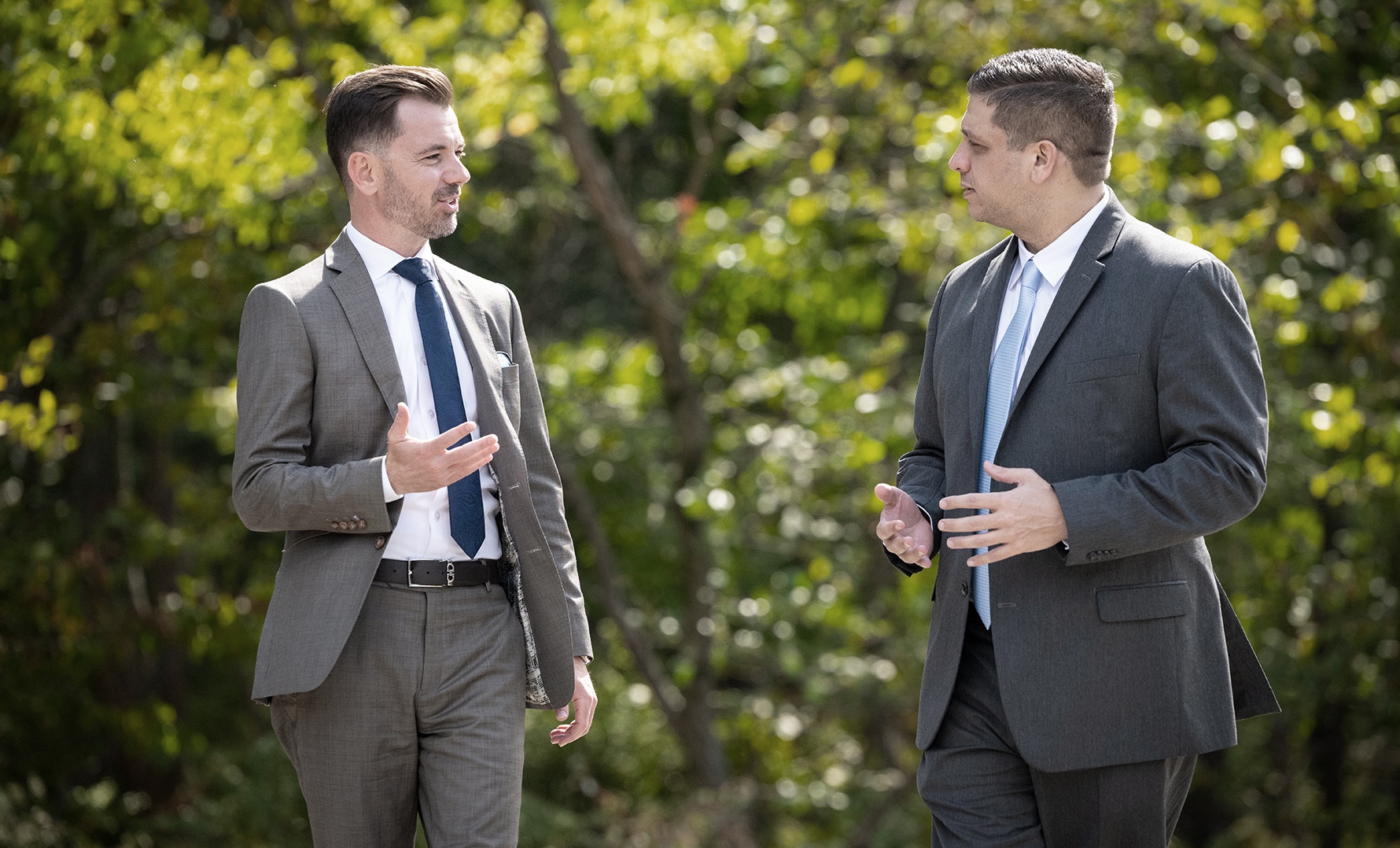
After a car accident, one of the first phone calls you’ll need to make is to your insurance company. While reporting the crash is required, many accident victims don’t realize how much of what they say can impact the outcome of their claim. Insurance adjusters are trained to look for statements they can use to minimize payouts. That’s why knowing what you should say to the insurance company after an accident (including what not to say) is so important.
In New Jersey, where insurance laws are complex, following the right communication strategies can make the difference between a fair settlement and a denied claim.
Why Communication With Insurance Companies Matters
Insurance companies are businesses, not advocates for accident victims. Their goal is to settle claims quickly and for as little money as possible. Even innocent remarks, like apologizing for the crash or downplaying your pain, can be used against you later.
By understanding the do’s and don’ts, you can protect your rights while still fulfilling your duty to report the accident.
The Do’s: What to Say to the Insurance Company
When speaking with an insurance adjuster, stick to the basics. Here’s what you should do:
1. Report the Accident Promptly
Most policies require prompt reporting. Call your insurance company as soon as possible after the crash.
Similar Post: What’s the First Thing You Should Do After a Crash? Why Pulling Over and Calling 911 Matters
2. Provide Factual Information
Share only the necessary details, such as:
- Time, date, and location of the accident
- Names and contact information of the other driver(s)
- Vehicle information and license plates
- Police report number, if available
3. Describe Property Damage Accurately
Give a straightforward description of visible damage to your vehicle. Avoid guessing at repair costs or hidden issues.
4. Confirm Medical Treatment
If you received medical care, confirm that you sought treatment but avoid giving detailed statements about your injuries until you’ve spoken with a doctor.
Similar Post: What’s the Next Step After a Crash? Why Accepting Medical Care Matters Even If You Feel Fine
5. Request Written Communication
Ask the adjuster to follow up in writing so you have records of what was said.
The Don’ts: What Not to Say to the Insurance Company
Certain statements can harm your claim. Avoid these common mistakes:
1. Don’t Admit Fault
Even saying “I’m sorry” can be taken as admitting responsibility. Let the police report and evidence determine fault.
2. Don’t Speculate About the Cause
If you’re unsure what happened, don’t guess. Simply say you don’t know or that the investigation is ongoing.
3. Don’t Downplay Injuries
Telling an adjuster you feel “fine” may hurt your case if hidden injuries appear later. Instead, say you are still being evaluated.
Similar Post: Can You Still Sue If You Accidentally Told the Insurance Company You Were “Fine” After a Car Accident?
4. Don’t Give Recorded Statements Without Counsel
Adjusters may ask to record your statement. You are not required to do this, and it can be risky without legal guidance.
5. Don’t Accept Quick Settlement Offers
Insurers sometimes offer fast payouts to close cases before the full extent of injuries is known. Accepting early can leave you with unpaid medical bills later.
Similar Post: Recovering from a Car Accident in New Jersey: Steps to Maximize Your Injury Claim
Why Less Is More
When it comes to dealing with insurance companies, less information is often better. Providing basic facts fulfills your duty while protecting you from saying something that could weaken your claim.
If you are unsure how to respond to a question, it’s okay to say: “I need to speak with my attorney before answering that.”
How New Jersey’s Insurance Laws Complicate Matters
New Jersey’s no-fault insurance system adds another layer of complexity. Your Personal Injury Protection (PIP) coverage pays for medical expenses, regardless of who caused the accident. However, suing for pain and suffering depends on whether your policy includes the unlimited right to sue.
Insurance companies understand these rules and may try to confuse claimants about what damages they can recover. Speaking cautiously and consulting with a personal injury attorney helps you avoid costly mistakes.
Common Insurance Adjuster Tactics
Insurance adjusters may
- Act friendly to make you feel comfortable sharing more than you should
- Ask leading questions designed to shift blame
- Request unnecessary details about your medical history
- Pressure you into accepting a quick settlement
- Suggest you don’t need an attorney
Recognizing these tactics can help you stay in control of the conversation.
Protecting Your Personal Injury Claim With Documentation
In addition to careful communication, thorough documentation is essential. Make sure to:
- Keep copies of all correspondence with the insurer
- Save medical records and bills
- Take photos of the accident scene and vehicle damage
- Preserve police reports and witness information
This evidence backs up your claim and reduces the insurer’s ability to dispute your story.
When to Let an Attorney Handle the Insurance Company
You don’t have to face insurance companies alone. In fact, many accident victims find it easier and safer to let a skilled car accident attorney handle all communications. An experienced lawyer can:
- Speak with adjusters on your behalf
- Ensure your statements are accurate but not harmful
- Negotiate for fair compensation
- File a lawsuit if the insurer refuses to pay what’s owed
By involving an attorney early, you minimize the risk of making a costly mistake.
Call Camili & Capo Today to File a Personal Injury Claim After a New Jersey Car Accident
If you’ve been in a motor vehicle accident in New Jersey, you’ll need to speak with the insurance company. However, what you say can make or break your claim. At Camili & Capo, we guide accident victims through every step of the process, ensuring that insurers don’t take advantage of your situation.
Our injury attorneys know how adjusters operate, and we have the experience to fight back against unfair tactics. Serving East Rutherford, Newark, and Bayonne, we’re here to protect your rights and help you recover the compensation you need while on the road to recovery.
Call us today at (973) 834-8457 or fill out our online contact form for a free consultation. Let Camili & Capo handle the insurance companies while you focus on healing.
Disclaimer: This blog is intended for informational purposes only and does not establish an attorney-client relationship. It should not be considered as legal advice. For personalized legal assistance, please consult our team directly.

